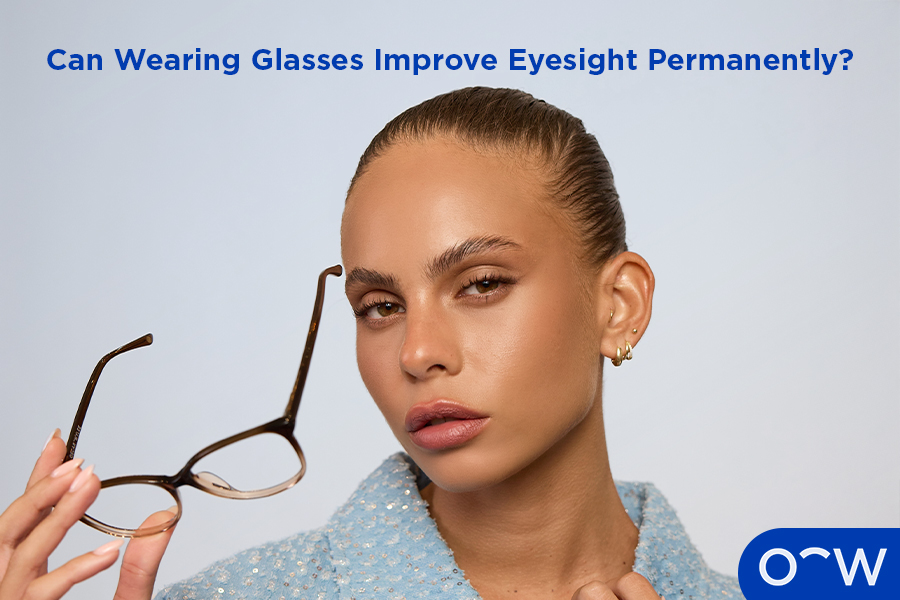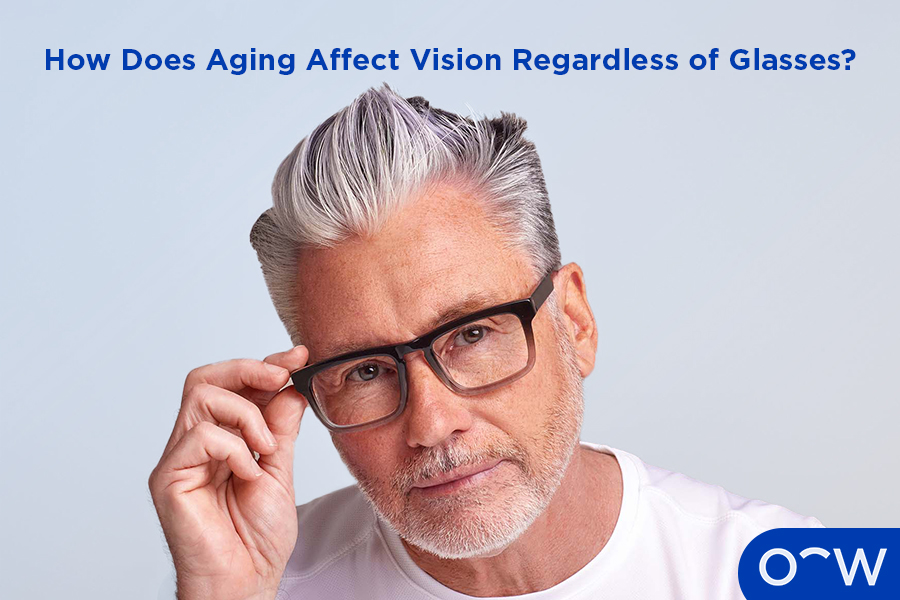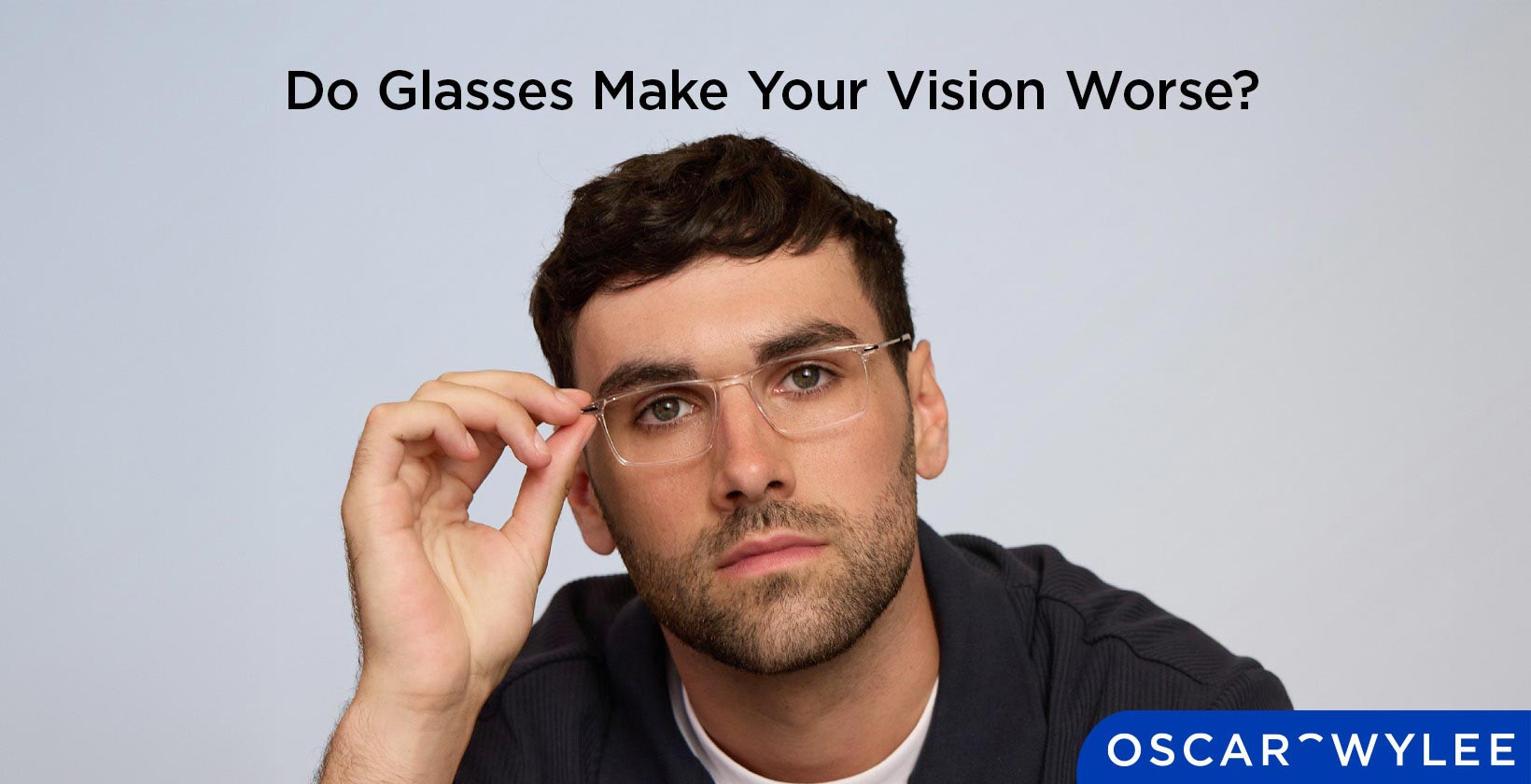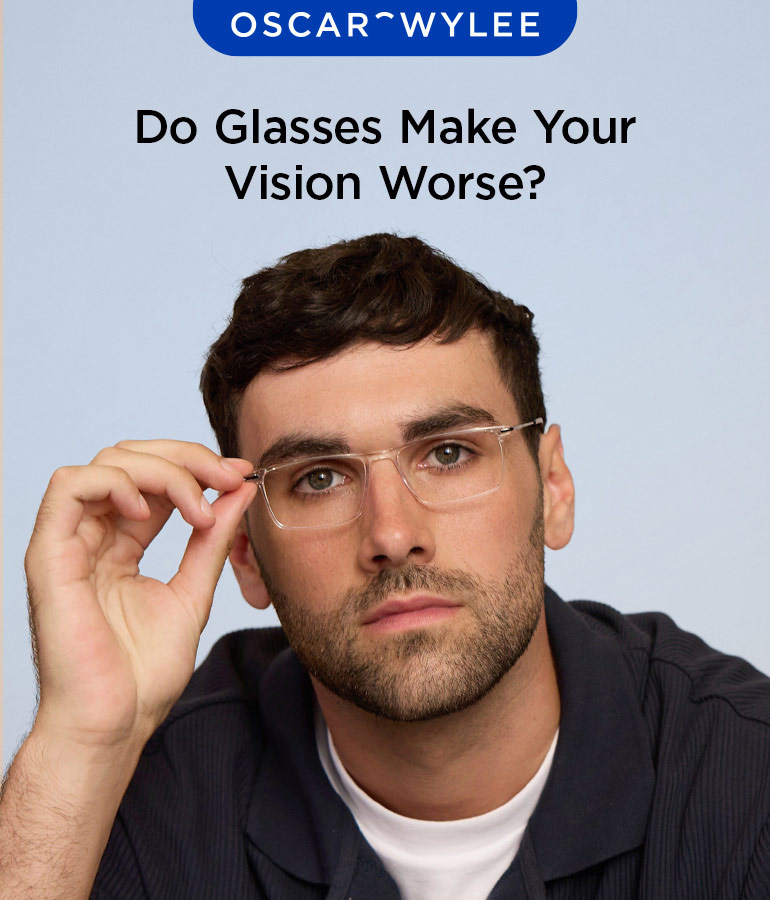Do Glasses Make Your Eyes Worse?
Published on October 31st, 2025
Glasses do not make your eyes worse. It is a common myth that glasses can make your eyesight worse and increase the progression of vision issues. In fact, wearing correct and accurate prescription glasses allows for optimal vision correction that is tailored to your refractive needs. Read on for more information on this common myth and ways to truly take care of your eye health.
Does Wearing Glasses Worsen Eyesight Over Time?
No, wearing glasses does not worsen eyesight over time. Prescription glasses aim to correct the vision problems of the wearer to lessen eye strain and allow for optimal visual clarity. Glasses for correct vision do not change the anatomy of your eye, so they will not make your eyesight worse, according to The Eye Lab Melbourne. Rather, your prescription glasses will be based on your present eye anatomy and the eye problems that emerge as a result.
Why Is My Eyesight Getting Worse Even with Glasses?
Your eyesight could be getting worse even with glasses due to the emergence of age-related conditions and other lifestyle factors. It is important to look out for the signs of the need for glasses such as visual blurriness, eye strain and headaches. A common age-related condition, presbyopia, for example, can occur around the mid-40s when the eye lens becomes less flexible and hardens over time. With an aging lens, light can't focus on the retina, making nearby objects blurry. Computer Vision Syndrome, also referred to as digital eyestrain, defined as "a complex of eye and vision problems" may also lead to worsened eyesight or eye strain and ache, according to Guide Dogs Australia, additionally, lifestyle factors such as smoking can lead to an increased risk of developing eye diseases, while a diet low on essential nutrients can make you more susceptible to eye diseases, according to Total Vision Optometrists.
Can Wearing Glasses Improve Eyesight Permanently?
No, wearing glasses does not improve eyesight permanently. Glasses are worn to improve your vision while you are wearing them; however, they are not able to correct refractive errors and other eye problems you may experience.


Is -4 Eyesight Bad?
A -4.00 prescription is not bad, but can be considered a moderate level short-sighted prescription. The 4.00 refers to the SPH (sphere) power in dioptres, which indicates the strength of the prescription. The minus sign in '-4.00' indicates shortsightedness also known as myopia, which means that you struggle to focus on objects at a distance.
What Are the Common Causes of Vision Deterioration?
The common causes of vision deterioration can encompass age-related macular degeneration, cataracts and glaucoma. Read more about these common causes of vision deterioration below.
- Age-Related Macular Degeneration: Age-related macular Degeneration (AMD) is the leading cause of vision loss in Australians over 50 years old, according to the Vision Australia Organisation. This eye condition refers to a gradual or sudden decline in the ability to see objects clearly.
- Cataracts: Cataracts are one of the most common eye conditions impacting older Australians. This eye condition refers to the clouding of the clear lens in one or both eyes. It can occur due to aging, but it can also affect younger people, and babies can be born with cataracts.
- Glaucoma: Glaucoma is a disease that damages the optic nerve, leading to the gradual loss of sight. Those who are short-sighted, have diabetes or use steroids are considered to have an increased risk.
Do Children's Eyes Become Dependent on Glasses?
No, children's eyes will not become dependent on glasses. It is important that children wear prescription glasses if they suffer from vision issues. If a child does not wear the glasses prescribed by an Optometrist, normal vision development can be adversely affected, according to Western Sydney Eye Doctors. Common vision issues that can occur in children include astigmatism, lazy eye (amblyopia) and Strabismus, which is when eyes are misaligned or crossed, according to The Optometrists Organisation.
Does Wearing the Wrong Prescription Harm Your Eyes?
No, wearing the wrong prescription will not necessarily harm your eyes or worsen your eyesight. However, a prescription that is either too weak or too strong for your eyes can lead to headaches, eye strain, or fatigue.
Can Eye Exercises Reduce Dependence on Glasses?
Eye exercises may not necessarily reduce dependence on glasses for each individual. There is no conclusive evidence to suggest that eye exercises reduce the need for glasses. However, they can potentially have a variety of benefits, such as improving ocular focus and reducing eye strain, according to the Optometrists Network. Eye exercises include Figure Eight, which involves tracking an object with the eyes in the shape of an 'eight' and Pencil Push-Ups, where a pencil is placed in proximity to the centre of the face, and the eyes have to focus on it.
How Does Aging Affect Vision Regardless of Glasses?
Aging affects vision, regardless of whether you wear glasses or not. Common eye conditions that emerge as a result of aging include presbyopia, a condition commonly emerging in your 40s where the eyes lose the ability to focus and age-related macular degeneration, a disease of the macula, the centre of the retina, which can cause blindness or severe vision loss. Diseases such as this can occur in people as they age, regardless of whether they needed glasses previously or not.


What Happens if You Wear Prescription Glasses When You Don't Need Them?
If you wear prescription glasses when you don't need them, you might experience eye strain and headaches. It is ultimately not a good idea to wear prescription glasses unnecessarily, as it will cause more problems, such as headaches and tension. Prescription glasses are designed to correct vision conditions, making them necessary for those with eye problems to wear.
Is 0.75 Eyesight Bad?
0.75 eyesight is not considered to be bad, but rather a mild prescription. +0.75 written in a prescription indicates mild hyperopia, which is when close objects can appear blurry, such as visuals on a computer screen or words in a book. Wearing prescription glasses that magnify nearby objects will allow for clearer eyesight and lessened eye strain.
Can 1.25 Eyesight be Cured?
No, 1.25 eyesight cannot be cured. There may be a need for a weaker prescription over time if your eyesight improves; however, it is unlikely that perfect vision can happen organically. Glasses and contact lenses are corrective measures for vision while they are being worn. However, procedures such as LASIK Surgery have allowed for around 99% of people to gain 20/40 vision or better, according to the Mayo Clinic.



